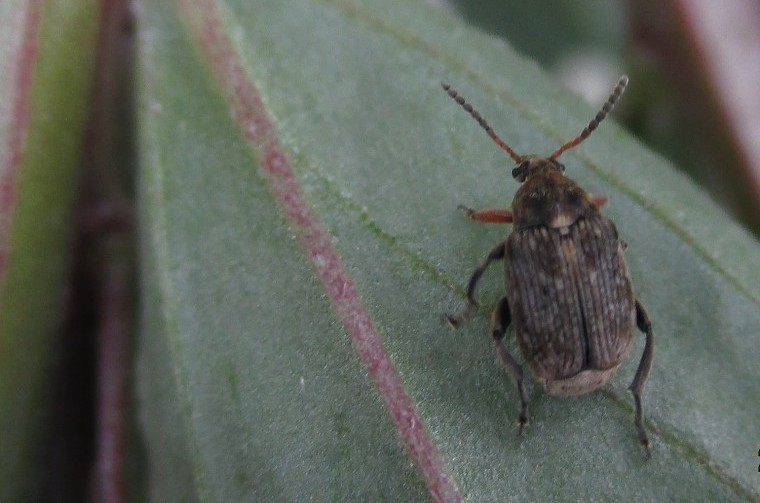The welcome surge in hot sunny weather has triggered the unwelcome start of Bruchid beetle warnings – just as the winter bean crops are reaching the danger point of first truss set.
Despite the slow start to spring it has had a limited the impact on species that typically invade later in the season, such as Bruchid. These species that over winter in hedge rows and dense foliage are less affected by winter weather conditions, pointed out Dr Max Newbert, Syngenta field technical specialist.
“Adult Bruchid become more active in warm settled weather and, when there are two consecutive days above 20°C, you can expect the onset of egg laying on any existing pods,” he warned.
“The early warning system, BruchidCast, has already predicted this occurring over the weekend and into next week, as a trigger to control adult beetles with Hallmark Zeon treatments, before they lay eggs.”
PGRO qualifies the danger period being from when crops have 50% of pods on bottom trusses over two cm long. Adult have already been spotted in crops, but do check your crop for the presence of adults beetles before applications.
Dr Newbert pointed out that crops with no trusses present as yet do not need treating, but with the first warnings at such an early stage of the crop’s flowering and set, it could prove a long season for Bruchid activity.
Early egg laying gives longer for Bruchid beetles to mate and produce larger numbers of eggs and larvae, with greater levels of damage. It comes on the back of an extremely bad year for bean damage in 2017, when a prolonged hot dry period in June saw sustained beetle activity.
Syngenta BruchidCast provides localised warnings of conditions that trigger beetle activity, to help growers to better time control treatments. It had been acclaimed by PGRO for helping achieve reduced beetle damage for several successive seasons, prior to last year.
Use of the tool is important as the adults are the target, due to the larvae being able to burrow directly into the pod after being laid, so are not exposed for chemical control. Applications should be applied so that control is achieved before substantial egg laying occurs.
Registration now on the website – www.syngenta.co.uk/bruchidcast – will ensure growers are forewarned of risks for the rest of the season, and help prioritise control to catch first egg laying.




